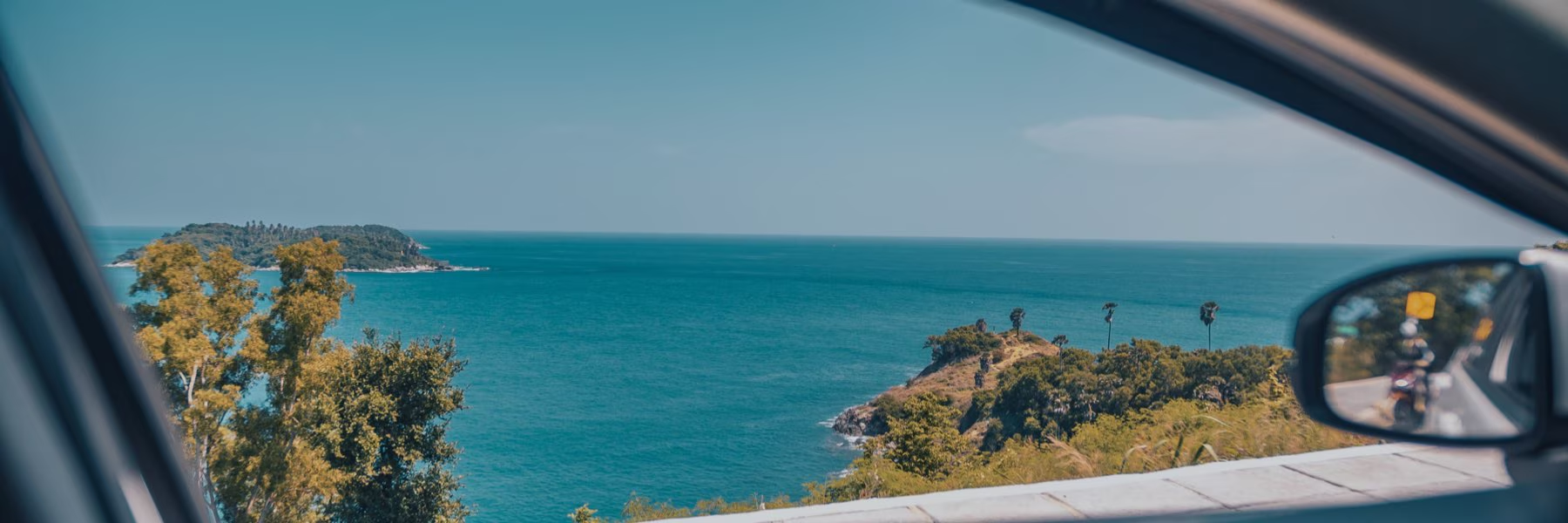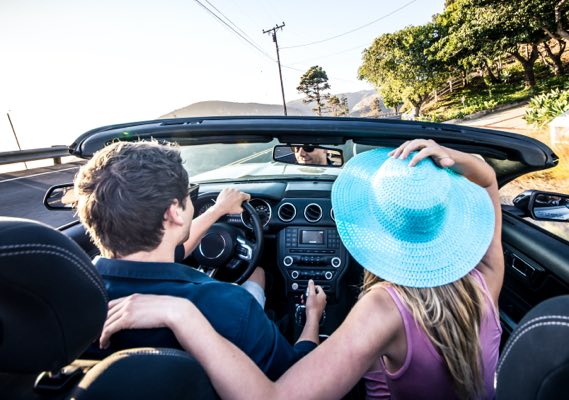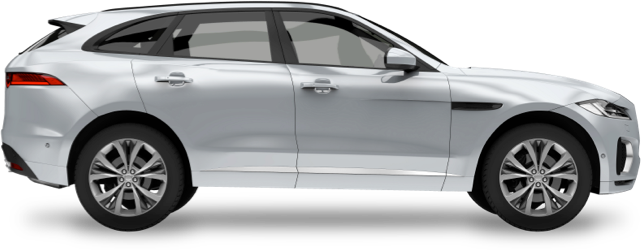- Over 1 million successful rentals

Car Hire French Polynesia
Save time and money. We compare the offers of car rental companies in French Polynesia on your behalf.
- Free cancellation Up to 48 hours prior to the scheduled pick up time
- Best price guarantee Have you found a better price? Let us know and we will make you a better offer.
- 24000+ pick-up locations Locations around the world

Compare Car Hire
Carrentals.co.uk offers simple and straightforward car hire comparison services. We don't add a penny to your quotes!
Car rental offers in French Polynesia
Whether you're looking for a small rental car or a station wagon for the entire family, we will always have a suitable vehicle for the lowest price. Below are some examples from our selection in French Polynesia.

-
Avis From£ 43 /day

-
Avis From£ 49 /day

-
Avis From£ 58 /day

-
Avis From£ 98 /day

-
Avis From£ 76 /day

-
Avis From£ 111 /day

-
Avis From£ 56 /day

-
Avis From£ 56 /day

-
Avis From£ 140 /day

-
Avis From£ 68 /day

-
Avis From£ 71 /day

-
Avis From£ 148 /day

-
Avis From£ 71 /day

-
Avis From£ 81 /day

-
Avis From£ 85 /day

-
Avis From£ 101 /day

-
Avis From£ 68 /day

-
Avis From£ 81 /day

-
Avis From£ 140 /day

-
Avis From£ 81 /day

-
Avis From£ 85 /day

-
Avis From£ 56 /day

-
Avis From£ 68 /day

-
Avis From£ 140 /day

-
Avis From£ 101 /day

When to book a rental car in French Polynesia
French Polynesia - When is the most affordable time to rent a mini class car?
At this destination (French Polynesia), January is the most affordable time to rent a mini class car with an average daily rate of
French Polynesia - When is the most affordable time to rent a economy class car?
At this destination (French Polynesia), June is the most affordable time to rent a economy class car with an average daily rate of
French Polynesia - When is the most affordable time to rent a compact class car?
At this destination (French Polynesia), May is the most affordable time to rent a compact class car with an average daily rate of
French Polynesia - When is the most affordable time to rent an intermediate class car?
At this destination (French Polynesia), June is the most affordable time to rent a intermediate class car with an average daily rate of
French Polynesia - When is the most affordable time to rent a standard class car?
At this destination (French Polynesia), June is the most affordable time to rent a standard class car with an average daily rate of
French Polynesia - When is the most affordable time to rent a full-size car?
At this destination (French Polynesia), June is the most affordable time to rent a full-size class car with an average daily rate of
French Polynesia - When is the most affordable time to rent a SUV?
At this destination (French Polynesia), June is the most affordable time to rent an SUV with an average daily rate of
French Polynesia - When is the most affordable time to rent a MPV?
At this destination (French Polynesia), June is the most affordable time to rent an mpv with an average daily rate of
French Polynesia - When is the most affordable time to rent a minivan?
At this destination (French Polynesia), June is the most affordable time to rent a minibus with an average daily rate of

French Polynesia Guide
French Polynesia is best explored by rental car. Carrentals.co.uk has over 4 pick-up locations in French Polynesia. This means there is always a pick-up location close to your destination.
Most popular car hire locations in French Polynesia
Driving
French Polynesia is a group of around 130 islands in the South Pacific. It is part of the French Republic and has an overall population of 267,000, almost 70% of whom live on Tahiti. The widely distributed network of islands covers an area of 4,167 sq km (1,622 sq miles), but is spread across 2,500,000 sq km (965,255 sq miles) of ocean.
Driving Tips for French Polynesia
Car hire companies operate on the main islands of Tahiti, Moorea, Huahine, Raiatea and Bora Bora. The majority of roads are narrow and winding and you should pay attention to the locals, who regularly speed. Drivers on the main roads have right of way and in Papette you give priority to cars from the right. Be wary of the traffic lights in Papette, which are usually on the left-hand side so can be difficult for drivers to see.
Driving licences: a valid driving license from your country of residence is sufficient.
Which side does French Polynesia drive on: the right.
Speed limits:
Towns and villages: 40kph (24mph)
Open roads: 80kph (48mph)
For 8km (5 miles) around Papeete: 60kph (36mph)
Alcohol limits: the alcohol limit in French Polynesia is 0.05, which is lower than the UK (0.08). The laws are enforced and punishable by a prison term.
Driving age: the minimum age for driving is 18, but you should check specific car-hire requirements.
Seatbelts: all passengers must wear a seat belt. Helmets are compulsory for riding a scooter or motorbike.
Mobile phones and GPS: as in the UK, for safety you should only use hands-free mobiles and limit your use of GPS.
Cost of fuel in French Polynesia: due to the high standard of living, fuel is generally more expensive than in the UK.
Car hire and fuel payment: both cash and major credit cards can be used for fuel payment.
Insurance: car insurance is available through your car hire company, but research other options before travelling to find the cheapest and most comprehensive cover.
Traffic and parking: make sure you check for any parking restrictions before leaving your vehicle and park with courtesy to other road users.
Transport
Buses
Buses meet the ferries on Moorea and will take you to your hotel or destination across the island. You will expect to pay a similar price to travel in the UK.
Ferries
Flights are mainly used to hop between the islands but there are ferries as well. Both Aremiti and Moorea Ferry operate services between Papeete and Moorea. A catamaran journey will take you around 30 minutes.
Airports
There are 53 airports across French Polynesia, 46 of which are paved. The only international airport is Faaa International Airport on Tahiti. Both Air Tahiti and Air Moorea connect the main island of Tahiti with the smaller islands. They run daily scheduled services, which are around the same price as European flights from the UK.
Explore
Exploring French Polynesia
The islands of French Polynesia are remote and tranquil, with clear blue waters and golden sandy beaches. The most popular islands for tourists are Tahiti and Bora Bora, which have well-developed facilities. The islands are not well known for having wide open roads, but the best road to travel on is the Route 5 Freeway between Papeete and Punaavia on the west coast of Tahiti. Here the speed limit increases to 90kph (54mph) and at one part it is 110kph (66mph).
Holidays and Festivals
There are a number of festivals and events across the year, including:
- Coming of the Gospel (March), which is to commemorate the arrival of the London Missionary Society
- Tahiti Pearl Regatta (May)
- Heiva Nui (July) is a month-long festival which was originally started to celebrate Bastille Day
- World Tourism Day (September)
- Tahiti Carnival (October)
Weather
French Polynesia has a tropical climate and showers can occur throughout the year. The temperatures between May and October are at their most comfortable around 82°F (28°C) and this is the driest period of the year. Between November and April, tropical storms can occur in French Polynesia, including cyclones.
Practical Stuff
French Polynesia Travel Tips
The Polynesians have a hospitable culture and are welcoming towards visitors to the islands. Tipping is not part of the Polynesian culture and is only expected when the service has been exceptional. French Polynesia is a relatively safe destination and crimes against tourists are rare.
French Polynesia Contact Numbers
International dialling/country code: +689
Emergency services: 17
British Embassy, (Paris): (33) 1 44 51 31 00
Money Matters
The currency across the islands is the CFP franc. The only major cards that are widely accepted are Visa, Mastercard, Amex, Diners and JCP (Japan). The Polynesians benefit from a high standard of living, but this does mean that the price of goods will be higher than in the UK. The main banks have branches and ATMs on the main islands, but some of the smaller islands don't have either. Some post offices will provide access to cash through Mastercard and Visa.
Health & Safety
No vaccinations are required for travel to French Polynesia, but you should probably have tetanus, hepatitis A and hepatitis B injections. They have the occasional outbreak of dengue fever, which is carried by mosquitoes. Each island has its own government clinic providing healthcare. However, international health insurance is not valid on the islands, so you will need to pay any costs and claim them back later.
Tap water should only be drunk in Papeete and on Bora Bora. In other areas you should stick to bottled water, which is readily available in stores. There are local brands that are considerably cheaper than the imported products.
Fitting In
The majority of the population are Christian and French is the official language. The Polynesian's are known for their warm, friendly welcome and they will always have a smile for tourists. They are very similar to Western people in their etiquette, so don't engage in any activity you wouldn't do at home.
Visas for French Polynesia
If your passport states that you are a British Citizen then you do not require a visa for stays of up to 3 months. Your passport should be valid for 6 months after your return date. You should abide by any customs requirements and be aware that the islands have strict regulations on the importing of pets and plants.
Electricity
The electricity supply is 220 volts, 50 cycles and they use the European standard plugs with 2 round prongs. If you're visiting a hotel on one of the smaller islands they may use a generator, so check what voltage this uses.
Business Hours
Shops: 7.30am-11.30 am and 2pm-5pm Monday to Friday, and 8am noon on Saturday.
Grocery stores: open 2pm-6pm on Saturday and 6am-8am on Sunday.
Helpful Phrases
- What time is it? - Quelle heure est-il?
- Hello Bonjour
- Excuse me - Excusez-moi
- Do you speak English? - Parlez-vous anglais?
Practical information
-
CurrencyCFP franc
-
LanguageFrench
-
Popular car categoryEconomy
What most people want to know
The following questions and answers are a selection of the most popular questions. If you do not find the answer to your question, have a look at the Frequently Asked Questions page or contact us.
- Avis
- Europcar
- Hertz
